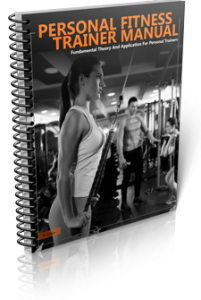
Happy 2020, too! Just kidding. Let’s take 2022 by the horns, by first closing out 2021 with some really excellent information presented by our strong team of NFPT blog contributors. Here’s where personal trainers can learn more about human anatomy as it relates to injury and strength gains, understand and apply mobility approaches, and take a dive into physiological concepts such as interactions between CBD and exercise as well as carb cycling. Don’t forget to have a little laugh teaching your circle what not to say to a personal trainer.
The following are the top 10 NFPT blogs of 2021 and each one is worth your time!
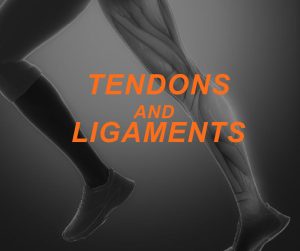 10. Understanding Connective Tissue: Ligaments and Tendons
10. Understanding Connective Tissue: Ligaments and Tendons
Connective tissue is the most abundant and varied tissue in the body. Most likely, the first variety that comes to mind are your dense tissues, such as tendons and ligaments that connect our muscles and bones together, and are those which our fitness clients are most familiar.
Tendons are comprised of thick, rubbery white tissue. Every muscle has a tendon on each end that attaches the muscles to the bone. Any kind of skeletal movement, from walking to lifting weights, happens because the muscle contracts and pulls on the tendon, which in turn pulls on the bone and moves it.
Ligaments are also attachment tissues, but they connect one bone to another and hold the joints together. Ligaments are thinner and less elastic than tendons. Although tendons and ligaments and don’t have the capacity to build a large network of blood vessels, per se, it is possible to manipulate the adaptive process to lead them to their greatest possible development.
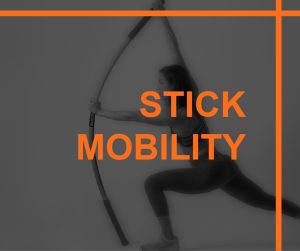 9. What Is Stick Mobility?
9. What Is Stick Mobility?
One of the best decisions that I have made as a personal trainer was to allow myself to evolve professionally and offer clients both great workouts that allow them to move and feel better. I strongly support myofascial release and corrective exercises as modalities to achieve mobility. However, I’ve noticed the greatest benefit through a system of orange sticks, called Stick Mobility.
As a personal trainer, the value that you provide your clients is immense. You get them in shape and you change their lives through exercise. Now more than ever, recovery and mobility programming should be a part of your skillset. These skills are necessary to achieve sustained results and will keep clients with you longer. Additionally, if your clients are constantly training hard and getting beat up injury is sure to be looming around the corner. Here’s why and how to incorporate Stick Mobility into client sessions.
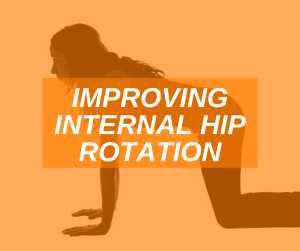 8. How To Improve Internal Hip Rotation
8. How To Improve Internal Hip Rotation
We recently established how a lack of internal hip rotation, or HIRD (hip internal rotation deficiency), can create a host of problems from knee pain to back pain, and how it can also be misdiagnosed for other hip pathologies. As common as this problem is, it is often overlooked. The good news is, correcting doesn’t have to be terribly difficult. There are a few simple movements that can mobilize the hip joint and free up the posterior capsule to allow a greater range of motion.
 7. Gut Health and the Nu Age Mediterranean Diet
7. Gut Health and the Nu Age Mediterranean Diet
Fitness professionals always preach that healthy insides, accomplished through clean eating, lead to improved overall health. Now conclusive research data points to how improving one’s diet may alter the intestinal microbiota, further promoting successful aging, specfically by implementing a Mediterranean diet. This approach, manifested by a research consortium comprised of nutritionists, bio-gerontologists, immunologists, and molecular biologists, has become known as the NU-AGE diet (Nutrition in Elderly People).
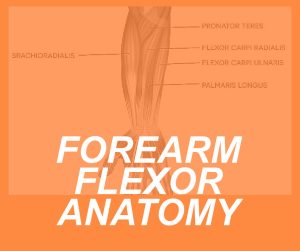 6. Forearm Flexor Anatomy
6. Forearm Flexor Anatomy
While performing myofascial release or massage therapy on our clients is absolutely outside our scope of practice, assisted stretching is very much a green light for trainers! However, don’t think that means it’s not possible to accidentally injure your clients if you don’t know what you’re doing.
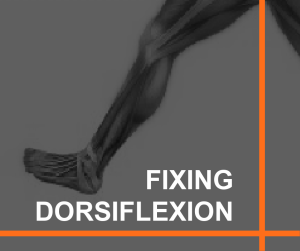 5. Improve Dorsiflexion By Strengthening This Muscle
5. Improve Dorsiflexion By Strengthening This Muscle
Welcome to our new normal, folks! How many of us had to turn to the virtual platforms in order to stay afloat and offer some kind of service to our clients when they couldn’t come in to see us, or vice versa? Lot’s of scrambling to learn a new approach to training has taken place, and this blog can help assuage the anxiety of pivoting to new platforms.
 4. Five Things Never To Say To A Personal Trainer
4. Five Things Never To Say To A Personal Trainer
If you’ve been in the fitness industry as long as I have, you may field questions that would make any professional bristle. The following gems may seem somewhat offensive, but more often than not, the offender usually does not know how insulting their questions sound (usually, I said). How we respond to ingrained assumptions is how we can collectively change the perception of our important jobs as health coaches and fitness professionals. Here are five things never to say to a personal trainer, coupled with the best retorts that may help others reframe the importance of what you do.
 3. Essential Leg Exercises for Basketball Players
3. Essential Leg Exercises for Basketball Players
Leg conditioning can provide basketball players with greater strength and coordination in today’s highly competitive sports world. Consider that the lower body’s gluteus maximus is the human body’s largest muscle. The optimal leg exercises may help players improve jump shots, block shots, and running the court. Additionally, proper conditioning can also help reduce the risk of injuries.
 2. How CBD Interacts with Pre-workout Supplements
2. How CBD Interacts with Pre-workout Supplements
This topic really does sort of turn HIIT on its head with some surprising facts and upsides to slowing your running pace. For many folks, that’s just how they roll—slow and steady. But if you’re a short, fast, and sweet runner like I am, slowing things down might provide benefits that sprinting cannot!
The blog that garnered the most reads in 2021:
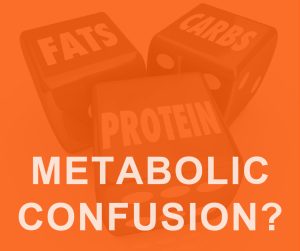 1. Metabolic Confusion: Conquering the Carb-Cycling Challenge
1. Metabolic Confusion: Conquering the Carb-Cycling Challenge
Among many of the weight loss approaches that are conceived these days, metabolic confusion has arrived on the scene.
Metabolic adaptation refers to the means by which metabolism adapts to one’s lifestyle over time. As one consumes fewer calories and burns them in exercise-induced excess, the general idea behind common “dieting”, one’s metabolism adapts and gets stingier with energy from calories and stored fat, doing the protective thing and slowing down what it uses in an effort to conserve the energy reserves which are starting to run low. Clients often complain that they have “hit a wall”, after which further weight loss comes to a standstill regardless of their behavior.
In contrast, the metabolic confusion platform promotes an eating style that alternates between high and low-carb days (usually causing a variance in caloric consumption). While this plan affords the dieter more flexibility than traditional meal plans, its restrictive nature and the need for precise decision-making with regard to macronutrients poses challenges to adherence over the long haul. Can this method work for the average client?
Happy New Year #NFPTfitfam! Let’s start 2022 out on the right foot!









